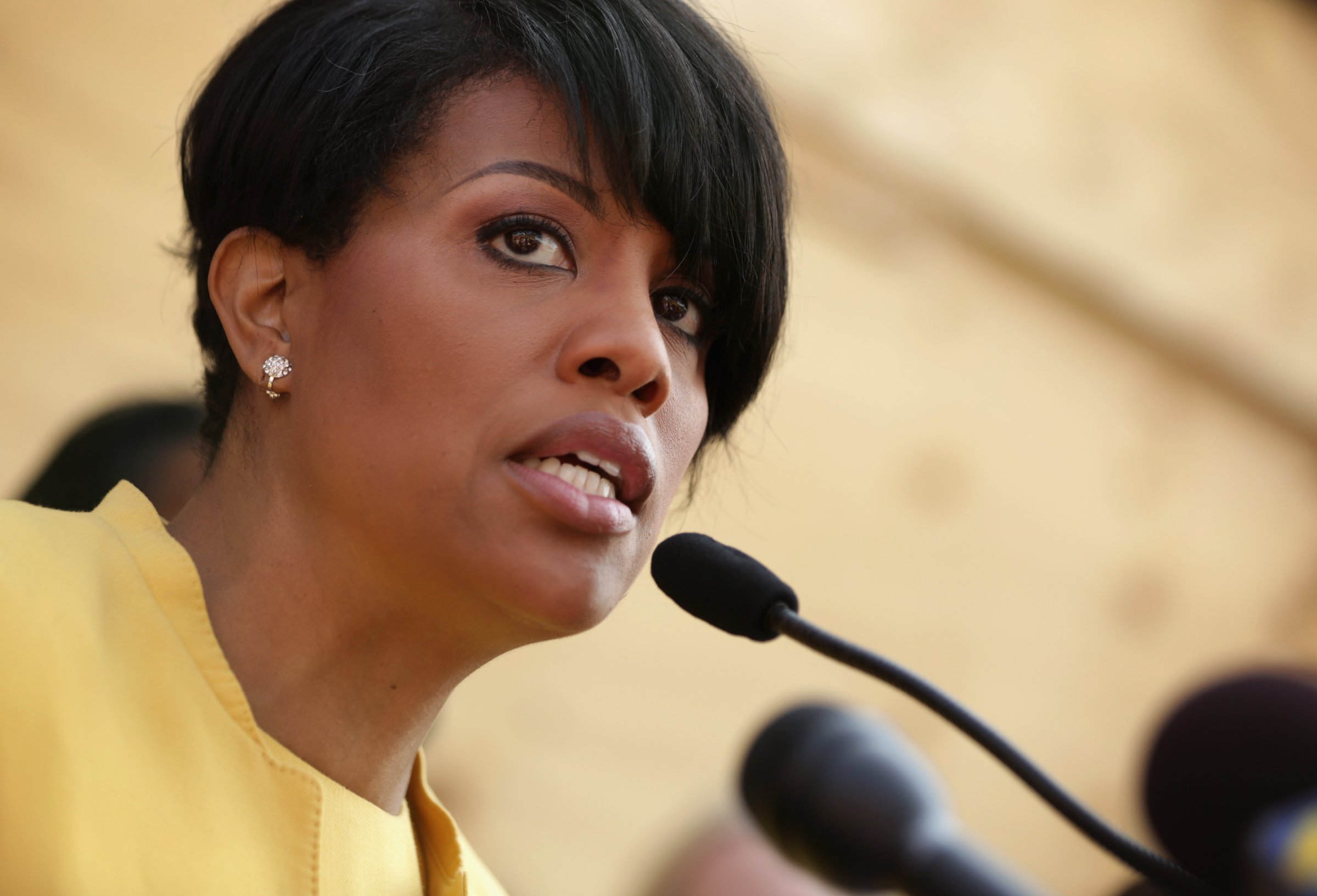
Almost two dozen liquor stores that sustained damage in the Baltimore riots following the late-April funeral of Freddie Gray will not receive city recovery aid, Mayor Stephanie Rawlings-Blake said Monday, unless they pick up and move or start selling healthier items.
Acknowledging that the city’s decision involving 23 liquor stores was based on their noncompliance with a zoning ban on alcohol sales, the Baltimore Sun reports, she used the time to urge the impacted stores to rethink their sales identity. “I have a great amount of sympathy for those stores that have been damaged, and we want them to rebuild,” she said. “We want them to reopen. But with all the grants and the loan programs that we have available we have a unique opportunity for these nonconforming liquor stores to convert into uses that can uplift our community.”
Out of 40 liquor stores damaged in the rioting—of 400 businesses overall—these 23 are in residential neighborhoods where the sale of alcohol is banned, having been grandfathered in under an older system. Those in commercial areas will receive city aid, but ones that aren’t will not. (The state does not have a similar restriction and is offering interest-free loans up to $35,000.)
The city’s health commissioner joined Rawlings-Blake for the remarks in Park Heights, a neighborhood heavy with liquor stores, as did Sharon Green Middleton, the City Councilwoman who represents that area. “Crime and grime is around liquor stores,” Middleton said. “So if they’re not going to work with the community, and change, they need to go.”
Read more at The Baltimore Sun
More Must-Reads from TIME
- Donald Trump Is TIME's 2024 Person of the Year
- Why We Chose Trump as Person of the Year
- Is Intermittent Fasting Good or Bad for You?
- The 100 Must-Read Books of 2024
- The 20 Best Christmas TV Episodes
- Column: If Optimism Feels Ridiculous Now, Try Hope
- The Future of Climate Action Is Trade Policy
- Merle Bombardieri Is Helping People Make the Baby Decision
Contact us at letters@time.com